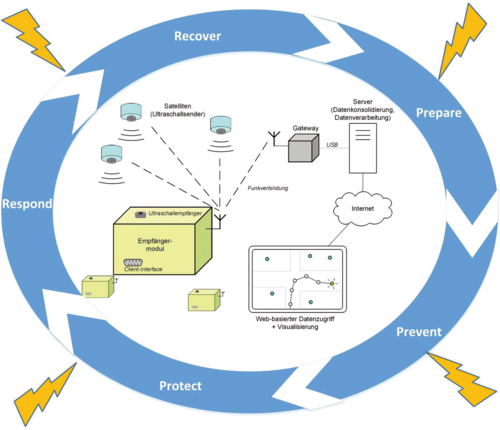Resilience indicators

The pilot project “Resilience Indicators for Optimization of Technical Systems” of the Sustainability Center Freiburg is about the determination of technical factors and metrics of resilience, which describe the availability of system performance and its temporal change before and after disruptive events, e.g., caused by environmental influences, subsystem failures or human errors.
Goal of this project is the development of a systemic and systematic practical method to validate and compare different system designs concerning resilience. Taking into account all phases of the resilience cycle, these indicators are intended to cover the domains reliability, safety and availability. In this context, precise and verifiable resilience indicators should be introduced, especially to determine the potential of optimization for a given technical system. In addition, new methodical and experimental analyses are required for its determination.
The first example system is in the field of warehouse logistics. An energy-self-sufficient and autonomous sensor system for affordable indoor localization of mobile objects is used for controlling and monitoring the interaction between goods and robots. During this process, disruptive subsystem failures should be analyzed. These failures are included but not limited to: the interruption of data connections, the failure of entire transmitter and receiver assemblies and also the disturbance of network grids. This project is supported by the German network of excellence “Intralogistik-Netzwerk in Baden-Württemberg e. V.” regarding the test setup and practical settings.
By additional case studies in sectors like airport security or construction site logistics, the technological independence and interdisciplinarity of the developed resilience indicators should be demonstrated. For this purpose, among others, the construction company Karl Burger GmbH is involved.